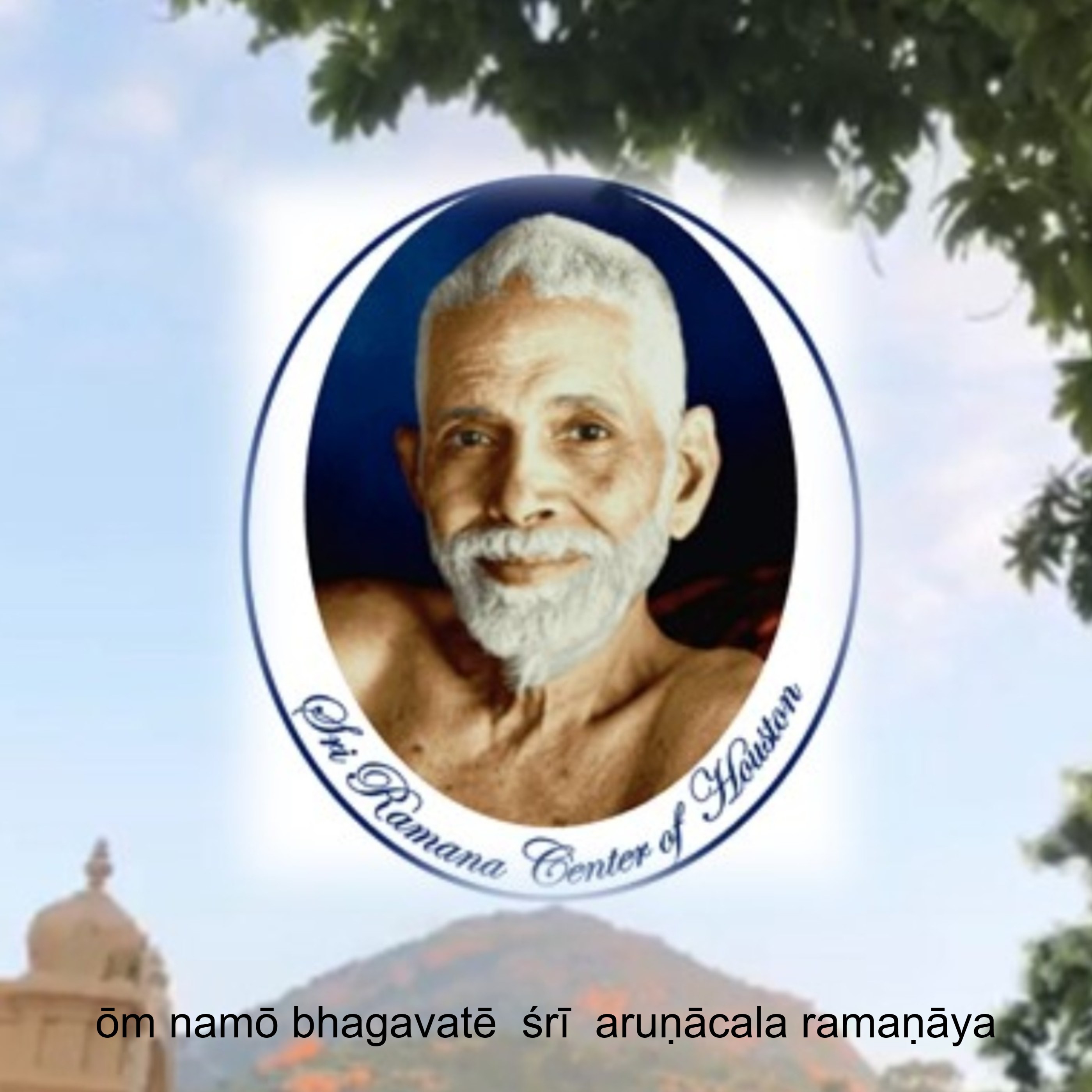

Sri Ramana Teachings
Sri Ramana Center of Houston
Philosophy and practice of self-investigation (ātma-vicāra) and self-surrender (ātma-samarpana) as taught by Bhagavan Ramana.
Episodes
Mentioned books

Aug 26, 2024 • 2h 7min
What is surrender and how to surrender?
In a Zoom meeting with the Chicago Ramana devotees on 25th August 2024, Michael answers various questions about Bhagavan’s teachings.
This episode can also be watched as a video here and a more compressed audio copy in Opus format (which can be listened to in the VLC media player and some other apps) can be downloaded from here.

Aug 24, 2024 • 2h 4min
The source and substance of ego is our own being, the pure ‘I am’
In a Zoom meeting with the Ramana Maharshi Foundation UK on 10th August 2024, Michael answers various questions about Bhagavan’s teachings.
This episode can also be watched as a video here and a more compressed audio copy in Opus format (which can be listened to in the VLC media player and some other apps) can be downloaded from here.

Aug 17, 2024 • 1h 56min
Self-investigation and overcoming desires
In a Zoom meeting with the San Diego Ramana Satsang (ramana-satsang-sd@googlegroups.com) on 4th August 2024, Michael answers various questions about Bhagavan’s teachings.
This episode can also be watched as a video here and a more compressed audio copy in Opus format (which can be listened to in the VLC media player and some other apps) can be downloaded from here.

Aug 14, 2024 • 1h 31min
Uḷḷadu Nāṟpadu Anubandham verse 17
In a Zoom meeting with Sri Ramana Center, Houston, on 3rd August 2024, Michael James discusses Uḷḷadu Nāṟpadu Anubandham, verse 17.
The translation of the verse by Michael can be found here.
This episode can also be watched as a video here and a more compressed audio copy in Opus format (which can be listened to in the VLC media player and some other apps) can be downloaded from here.

Aug 7, 2024 • 2h 48min
We are not aware of ourself as we actually are because of ego
Michael explains the essential import of Uḷḷadu Nāṟpadu and all of Ramana's teachings in 8 key points -- 8 talks (episodes). This is the third talk with the third point: We seem to be not aware of ourself as we actually are only because we now seem to have risen as ego, whose nature is to be always aware of itself as ‘I am this body’ and consequently aware of the appearance of other things. After explaining this point, Michael answers questions related to Ramana's teachings.
This episode can also be watched as a video here and a more compressed audio copy in Opus format (which can be listened to in the VLC media player and some other apps) can be downloaded from here.
Disclaimer: The book mentioned at the beginning of this episode is a private compilation by a third party that has not been read or endorsed by Michael James or by the management of Sri Ramana Center of Houston. This video is released for educational purposes only. As a U.S.-based nonprofit spiritual organization, SRCH does not endorse for-profit products or services, nor nonprofit offerings that are not aligned with its mission to spread the teachings of Bhagavan Ramana.
- Sri Ramana Center of Houston

Aug 4, 2024 • 1h 56min
Bhakti is the mother of jñāna
In a Zoom meeting with the Chicago Ramana devotees on 28th July 2024, Michael answers various questions about Bhagavan’s teachings.
*** The first 15 minutes of this meeting were not recorded. We apologise for the inconvenience. Thank you for understanding.***
This episode can also be watched as a video here and a more compressed audio copy in Opus format (which can be listened to in the VLC media player and some other apps) can be downloaded from here.

Aug 1, 2024 • 2h 14min
Ātma-vicāra is ‘always keeping the mind on oneself’
In a Zoom meeting with the Ramana Maharshi Foundation UK on 27th July 2024, Michael answers various questions about Bhagavan’s teachings.
This episode can also be watched as a video here and a more compressed audio copy in Opus format (which can be listened to in the VLC media player and some other apps) can be downloaded from here.

Jul 27, 2024 • 1h 2min
The nature of ego and how to eradicate it
In a Zoom meeting on 24th July 2024, Michael answers Kartik's questions about Bhagavan’s teachings, specifically about the nature of ego and how to eradicate it.
This episode can also be watched as a video here and a more compressed audio copy in Opus format (which can be listened to in the VLC media player and some other apps) can be downloaded from here.

Jul 25, 2024 • 1h 32min
Uḷḷadu Nāṟpadu Anubandham verse 16
n a Zoom meeting with Sri Ramana Center, Houston, on 20th July 2024, Michael James discusses Uḷḷadu Nāṟpadu Anubandham, verse 16.
The translation of the verse by Michael can be found here.
This episode can also be watched as a video here and a more compressed audio copy in Opus format (which can be listened to in the VLC media player and some other apps) can be downloaded from here.

Jul 19, 2024 • 1h 44min
Investigating who am I is the means to just be
In a Zoom meeting with the Ramana Maharshi Foundation UK on 13th July 2024, Michael answers various questions about Bhagavan’s teachings.
This episode can also be watched as a video here and a more compressed audio copy in Opus format (which can be listened to in the VLC media player and some other apps) can be downloaded from here.


